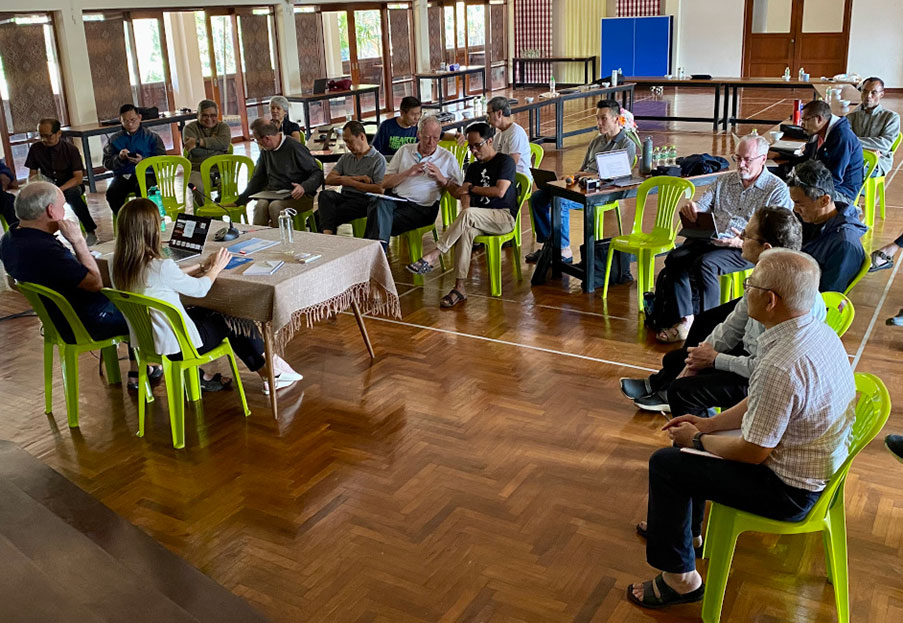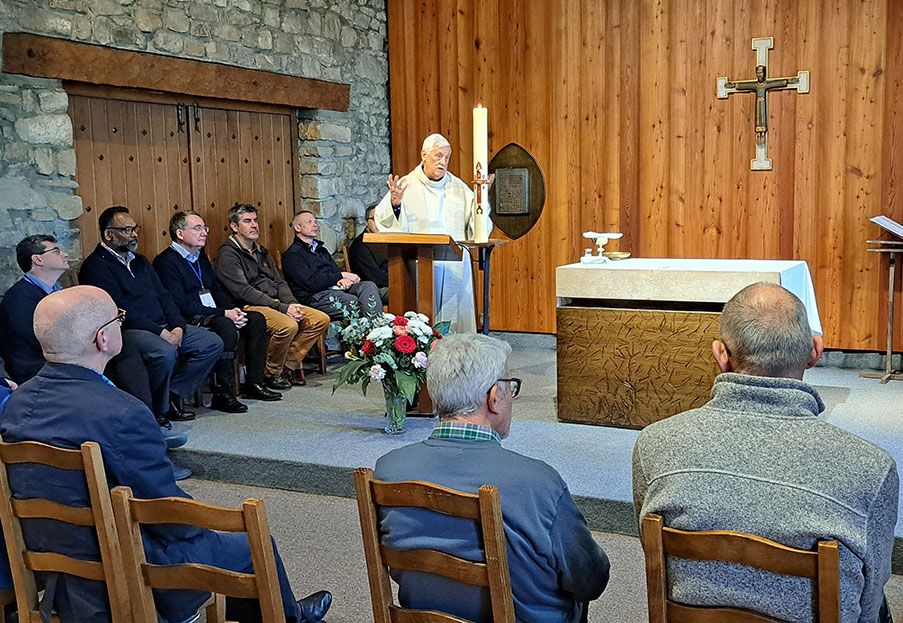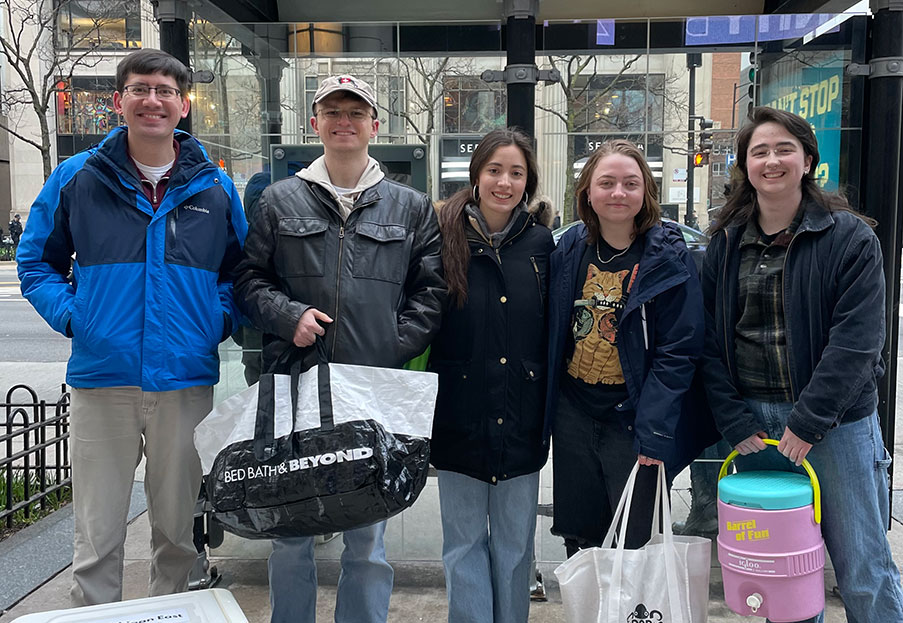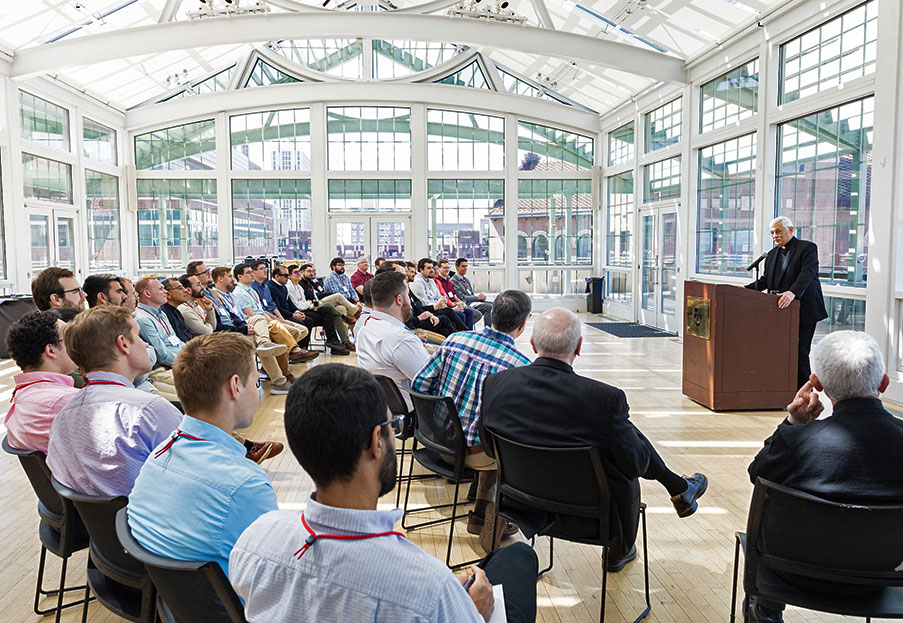We dare to hope in times as dark as these
We publish here for your information an article
from the Justice and Peace Commission of the Holy Land
Brothers and sisters,
In the Easter season, we proclaim, “Christ is risen”! However, our entire region totters on the brink of a regional war as Israel and Iran exchange threats. The horrific war on Gaza has widened to draw in other countries and prophets of doom predict that we are heading towards a full-scale world war. What does it mean to celebrate Easter at this time? Did anything change with the coming of Christ? His resurrection promises abundant life, yet death reigns all around. This year it is so difficult to believe! The Psalmist describes our sentiment even at Easter: “Hear my prayer, O Lord; give ear to my supplications in your faithfulness; answer me in your righteousness… For the enemy has pursued me, crushing my life to the ground, making me sit in darkness like those long dead. Therefore, my spirit faints within me; my heart within me is appalled” (Psalm 143:1-4). This Easter, we too are appalled by the enemy that is unceasing war.
In Gaza over two million of our brothers and sisters are buried under the rubble or trying to live on top of it. Others are on the road, fleeing from one place to another, desperately seeking safety. In Gaza death continues to impose its reign more than six months after this last round of violence began. It stalks the people wherever they are, coming like lightning from airplanes above and from armed soldiers on all sides. Or it creeps up, seizing them through hunger, sickness, lack of medicine and hospital care. Those left behind are consigned to live in a devastated landscape that evokes apocalyptic destruction.
However, death not only reigns in Gaza, but in the West Bank too. Palestinians continue to live under oppressive occupation, depriving them of freedom of movement, freedom to develop their society, freedom to live normal family life. Their lands are encroached on, confiscated, their homes destroyed. So many are rounded up, arrested, and languish in prison without trial, others killed or wounded by trigger-happy soldiers. Israeli settlers wander the area in gangs, free to harass, abuse, dispossess and kill with little hindrance. Life has become even harder as the war rages on in Gaza and many of those in the West Bank are more policed than ever, unemployed and with no perspective for the future.
Jerusalem, the Holy City, is shrouded in despair. The city’s Muslim and Christian Palestinian character is progressively eroded. More and more Israeli settlers move into Palestinian quarters, taking over Palestinian homes and even Church properties, and construct more housing in Palestinian areas, bringing with them increased police and military presence. Palestinians, Christians and Muslims alike, are more and more limited in where they can live, what they can do, how they can engage in the life of their city.
At the same time, Jewish Israelis, many of whom look on Palestinians as enemies and interlopers, live in fear despite their military might. Since the horrific events of October 7, 2023, many have been focusing on their own dead and hostages. Many ignore those being massacred by their army and starved by their government. Clearly shocked by the failures of their own political leadership and military establishment, the reaction of too many seems to be a search for vengeance and military victory, manifesting a disquieting insensitivity to the suffering of others. Many seek safety and illusory security through military victory. Only too few seem to realize that the only way forward is through dialogue, the end of violence, occupation, discrimination, and oppression. Israel receives the support of the powerful in this world, overwhelmingly deaf to the repeated prophetic warnings of Pope Francis since the start of the war, “War is defeat for everyone!”
The Holy Land is choking on human suffering, oppression, injustice and destruction. Death seems to have vanquished life; inhumanity continues to block the recognition of the other as also created in God’s image. The brazen indifference of too many around the world, especially those in positions of leadership, encourages observers to look on impassively or turn away.
Yet it is Easter! The Psalmist does not end with despair but continues, “I remember the days of old, I think about all your deeds, I meditate on the works of your hands. I stretch out my hands to you; my soul thirsts for you like a parched land” (Psalm 143:5-6). If we only look around at the present, we risk becoming prisoners of despair. In daring to hope, we must remember! In the midst of this reality of death, we are called to remember that the tomb is empty. Jesus emerged triumphant; death could not hold him. This is God’s promise throughout Scripture and God is faithful to God’s promises. We remember that God is near: “God is near to the broken-hearted, he helps those whosespiritis crushed” (Psalm 34:18). Amid sufferings, Christians firmly believe that “hope does not disappoint us, because God’s love has been poured into our hearts through the Holy Spirit that has been given to us” (Romans 5:5).
With the Risen Christ, who is walking with us, as he walked with the disciples to Emmaus, we endeavor to discern fragile signs of light and hope already at work during the present darkness. On both sides, some people have the courage to show their desire and readiness to live together, to work for a peaceful solution to the conflict and to build a better future for all. We also hope that we, Christians, Palestinian and Israeli, together, can be a seed of understanding and peace, praying together, listening to each other, and serving all without distinction.
We also remember that our land has not always been a place of death nor is it destined to remain one. God promised that it would be a land of life and hope. The Church in the Holy Land has declared that we “stand with all those living in the land first and foremost as human beings. We seek to show a way out of a permanent situation of war, hatred, and death. We seek to point the way to a new life in this land, established on principles of equality and love. We underline that any resolution must be based on the common good of all who live in this land without distinction.
(...) Therefore, we promote a vision according to which everyone in this Holy Land has full equality, the equality befitting all men and women created equal in God’s own image and likeness. We believe that equality, whatever political solutions might be adopted, is a fundamental condition for a just and lasting peace. We have lived together in this land in the past, why should we not live together in the future too? We repeat these words today!” (Assembly of Catholic Ordinaries of the Holy Land, Righteousness and Peace will kiss each other, May 20, 2019).
The experience of Easter obliges us to proclaim: The Risen Lord has triumphed over death and evil and we are witnesses to this. God is near, nearer than the human cruelty that sows death. Let us gaze into the empty tomb and keep hoping.It is precisely in this place of darkness that the resurrection finds its voice.The voice that proclaims that love is stronger than death, that violence is never the answer. It is in the place of resurrection that the Beatitudes- which oftenseem impossible to live- become possible with Christ. It is the resurrection that not only guides us but that lives in us, guiding our every decision.
In Easter, the human personis liberated from cycles of vengeance and violence, able to answer violence with love. The resurrection is not our response to violence; it is our very identity as Christians, called to preach hope when hope seems impossible, to witnesstolife whenour day-to-day reality seems to promise only death. This hope, in our smallness, in mustard seeds, yeast in bread,translates into our stubborn insistence on continuing to imagine a better common future and then setting out the work of living it now.
And so: at Easter and
even during this time of death, we proclaim, “Christ is risen” and
respond: “Truly he is risen!” And we who live in Jesus’s own land continue
to affirm that the tomb is empty. It stands in the midst of our land, in the
midst of our holy city, pointing to its own emptiness, affirming the power of
life over death, and of hope over despair.







